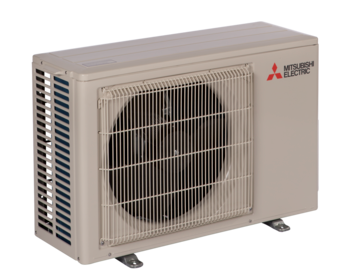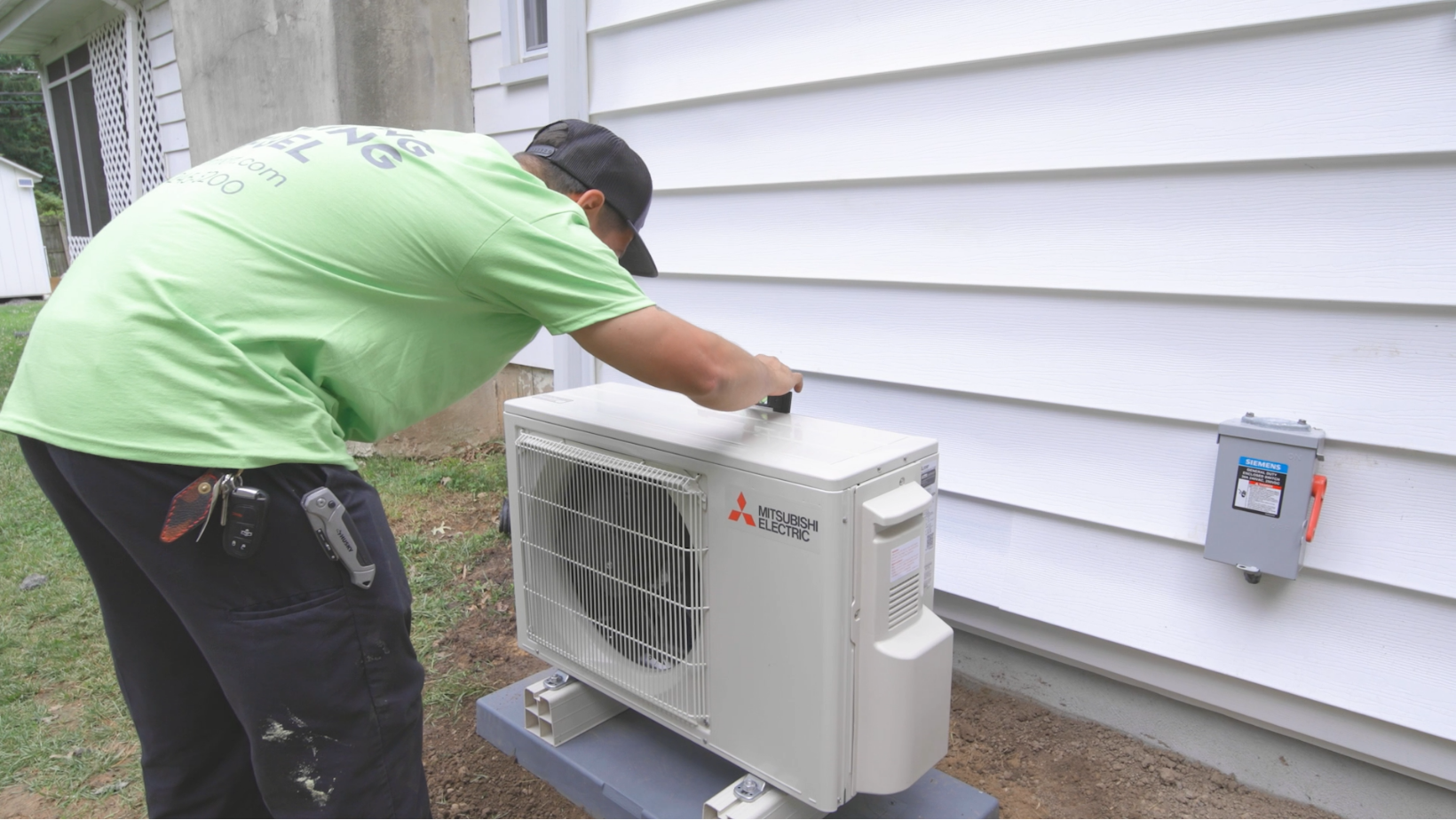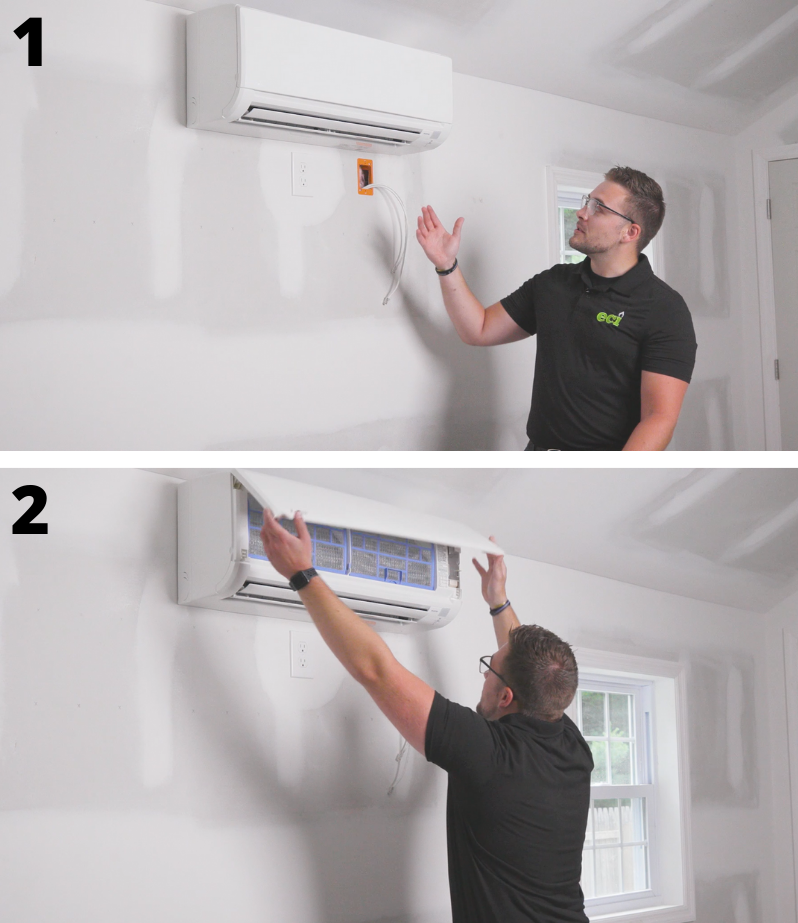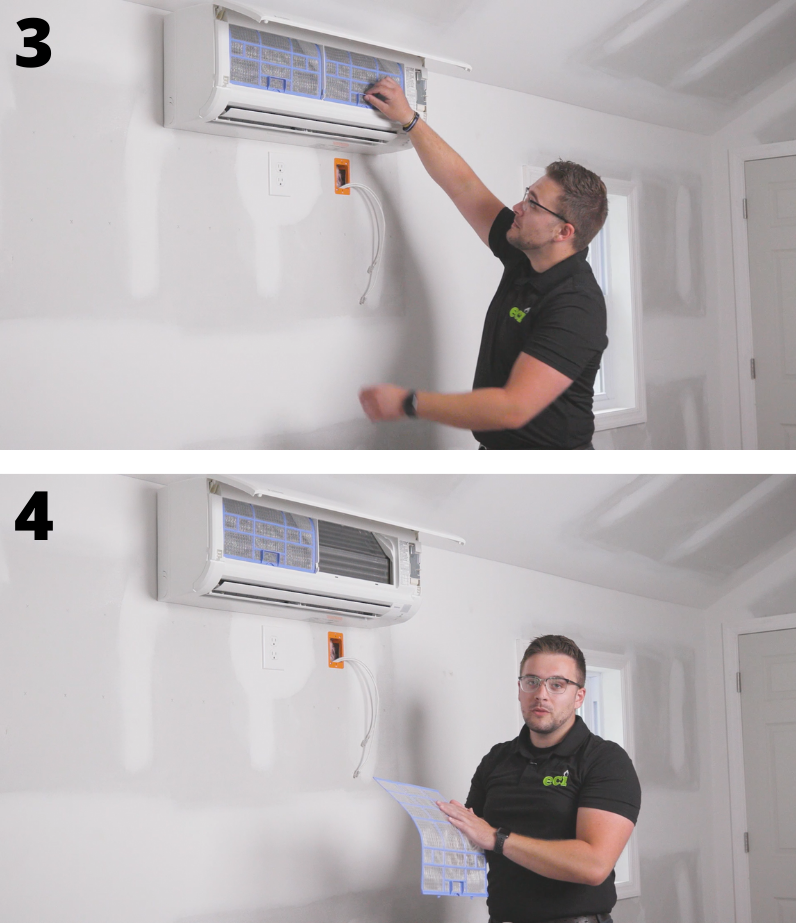Like any heating or cooling system, heat pumps can run into issues over time. While this isn't out of the ordinary, knowing what could be causing the problem is helpful in getting fixed. We're here to tell you the most common problems, how to spot them, what causes them to occur, and how to fix them.
Issues with your electric heat pump system can range from a simple tripped breaker to a more complicated broken component. While some things can easily be solved yourself, many problems are better off handled by an experienced technician. This is why it's important to know exactly what's going on so that the right actions can be taken.
Most Common Heat Pump Problems (and What to Do About Them)

Water leak (inside)
causes
The main cause of water leaking from the indoor unit is the condensate drain getting clogged up. If the drain clogs, condensed water from the evaporator cannot drain out, causing it to overflow and drip out of the air handler and down to the floor below it.
signs
Signs of a clogged condensate drain could be your AC not cooling your home well, your AC not turning on, higher energy bills, and, of course, water dripping from the unit.
solutions
Luckily, this problem can easily be fixed (even without a technician)! If you want to try to fix it yourself, all you need to do is turn the heat pump off, take apart the front cover, and unclog the drain using a towel or dry vacuum. Once it's unclogged, pour a little bit of distilled white vinegar in to help kill algae and fungi and eliminate bad odor.
Water leak (outside)
causes
A water leak by your outdoor unit could be caused by several things. One cause is a cracked or broken condensate pan that allows water to leak out. Another is a dirty or blocked air filter, which causes restricted airflow to the evaporator coil. In this case the coils can freeze, causing water to spill out of the condensate drain pain.
There could also be a blockage in the condensate drain pipe that can force water to back up and out of the drain pan, leaking out of the condenser unit -- just like how it may cause a leak out of the indoor unit. Other causes of an outdoor water leak may be a bad AC seal or improper installation.
signs
A puddle of water will likely be visible right by the outdoor condenser unit.
solutions
Your best bet here is to turn off the heat pump and call a service technician. Since there are so many possibilities of what could cause the issue, it's better not to try to fix this one yourself.
Heat pump not turning on
causes
One major cause of your heat pump not turning on could be a thermostat issue. Your programmable thermostat may not be set for the heat/air conditioning to come on at the right time. If it is set correctly, it might be calibrated incorrectly. If that's the case, the thermostat may be reading the temperature incorrectly or it may not be communicating with the heat pump.
Another culprit may be a broken reversing valve. The reversing valve is the component responsible for switching your heat pump between heating and cooling mode. So if it turns on when you want cool air but not when you want heat, for example, this is likely the cause.
Next, you might be dealing with a broken starter capacitor -- the component responsible for transmitting the electrical charge that turns on the motors. If you can hear a faint "clicking" noise that occurs as the heat pump is supposed to be turning on, your problem is likely with the starter capacitor.
The fourth major cause is power loss. If your power goes out it could result in a tripped breaker, which would stop the electrical flow to your heat pump.
signs
It's clear your heat pump isn't turning on if you aren't getting any cold or warm in your home. But how do you know if you're having a specific issue, like a thermostat issue? It may not turn on at all or it may be unresponsive to your adjustments. Alternatively, you may notice uneven temperatures resulting in hot or cold spots throughout the home.
solutions
If your heat pump won't turn on for any of these reasons, it should be serviced by a professional. An experienced technician will be able to determine the root cause and then make the necessary repairs.

Not heating or cooling properly
causes
If your system is not cooling or heating when you need it to, it could simply be that the thermostat is not set to the corresponding setting. It could also be due to dirty components in the system. If the air filter has too much build up on it, it can block airflow to the compressor - the component that actually heats the air for your home. If other parts are dirty, the system also may not cool efficiently.
Blockage/dirtiness around the outside of your heat pump may be a contributing factor as well. Your heat pump pulls air from outside and transfers it into your home. If the airflow to your unit is blocked by snow, ice, leaves, dirt, or another type of debris, this can make it difficult for the heat pump to do its job.
Another common cause is that the refrigerant charge is too low, which means the system will struggle to bring enough heat inside (or struggle to cool your home).
Next, the issue could be a frozen evaporator coil. This can occur if your heat pump does not receive the required amount of airflow due to build up of dust, dirt, and grime on the evaporator coil or due to a blocked air inlet. Finally, as mentioned before, you may have a broken reversing valve on your hands.
signs
If the air coming out of your indoor unit(s) is lukewarm or if you are noticing odd smells, it may be a sign that the filter is dirty. If the system is air that's not hot or cold enough, that's a sign that the refrigerant is low. If your heat pump is running in cooling mode but the air coming out of your vents is hot, it's likely an issue with the reversing valve.
solutions
For too much buildup on the filter, simply change the air filter or clean the outdoor components. Filter cleanings/changes are also part of annual maintenance, a critical factor in keeping your HVAC system running smoothly. Check out the photos below to see how easy it is to remove the filter of a ductless unit.



Similarly, if the heat pump is blocked outdoors, simply clean it off and clear away any debris that may be blocking the way.
If you suspect that the refrigerant charge is too low, a professional will need to come out to check the levels, recharge the system, and inspect/repair any leaks. If a technician comes out and determines the the evaporator coil is frozen, you will have to turn off the system and let the coil defrost. After the ice has melted, the technician can thoroughly clean the the evaporator and make sure the inlet and filter aren’t blocked up. Lastly, a broken reversing valve will also need to be replaced by a technician.
Bad odor
causes
Unpleasant smell is a common problem when it comes to heat pumps and other air conditioning systems. Bad odor can be caused by many things including a clogged condensate drain, wet filters, fungus buildup, refrigerant leaks, etc.
signs
Bad odor? You'll know!
solutions
Besides changing the filter and unclogging the condensate drain yourself, you should contact a professional to diagnose the issue. Since bad smells can be caused by so many different things -- some more serious than others -- the best thing to do is let a technician determine the cause and make the necessary fix.
Weird noises
causes
The last common heat pump problem is odd noises. Unusual noises may be due to loose parts within the system or a trickier situation like something wrong with the pump. As mentioned earlier, there also may be a problem with the starter capacitor.
signs
If you hear rattling noises, it's a sign that there are loose parts. A squeaky-type sound, on the other hand, may indicate a more serious issue within the heat pump. And a clicking sound when the unit is supposed to turn on usually points to a broken starter capacitor.
solutions
Like many issues on this list, calling a maintenance specialist is the most helpful option. A technician can troubleshoot and repair or replace any parts if need be.
The average heat pump lasts about 10-15 years, so if you've had one for that long then it's probably time to look into a replacement. However problems can arise over the heat pump's lifespan; so make sure to watch out for these signs and promptly make any fixes to maintain constant comfort!
If you live in the Delaware Valley/Greater Philadelphia area and would like to find comfort within your home, visit our website or give us a call at 215 - 245 - 3200 to learn more.




